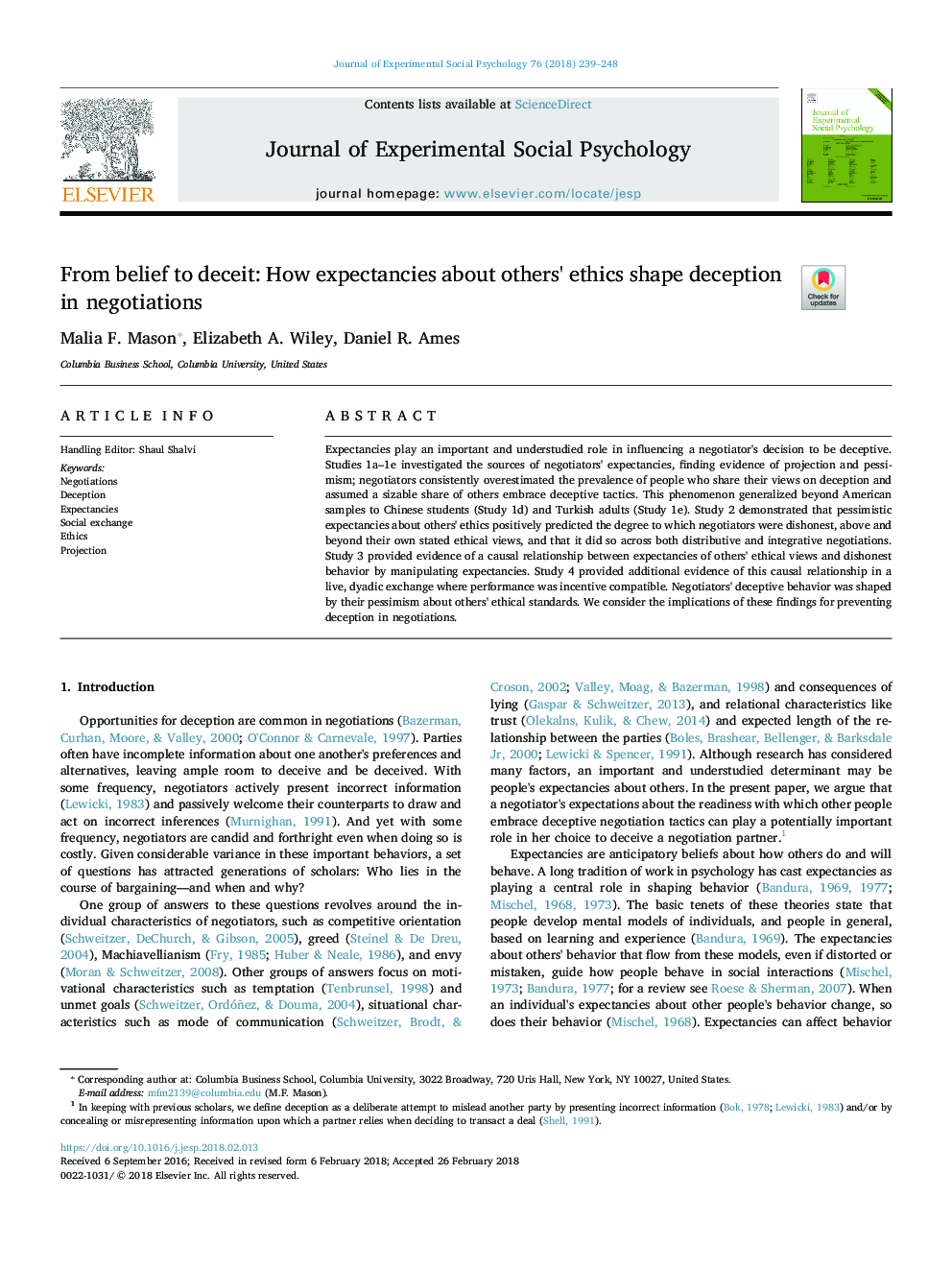| کد مقاله | کد نشریه | سال انتشار | مقاله انگلیسی | نسخه تمام متن |
|---|---|---|---|---|
| 7324125 | 1475847 | 2018 | 10 صفحه PDF | دانلود رایگان |
عنوان انگلیسی مقاله ISI
From belief to deceit: How expectancies about others' ethics shape deception in negotiations
ترجمه فارسی عنوان
از اعتقاد به فریب: چگونه انتظارات در مورد اخلاق دیگران، فریب در مذاکرات را شکل می دهد
دانلود مقاله + سفارش ترجمه
دانلود مقاله ISI انگلیسی
رایگان برای ایرانیان
کلمات کلیدی
مذاکرات، فریب، انتظارات، تبادل اجتماعی، اخلاق، پروژکتور
موضوعات مرتبط
علوم زیستی و بیوفناوری
علم عصب شناسی
علوم اعصاب رفتاری
چکیده انگلیسی
Expectancies play an important and understudied role in influencing a negotiator's decision to be deceptive. Studies 1a-1e investigated the sources of negotiators' expectancies, finding evidence of projection and pessimism; negotiators consistently overestimated the prevalence of people who share their views on deception and assumed a sizable share of others embrace deceptive tactics. This phenomenon generalized beyond American samples to Chinese students (Study 1d) and Turkish adults (Study 1e). Study 2 demonstrated that pessimistic expectancies about others' ethics positively predicted the degree to which negotiators were dishonest, above and beyond their own stated ethical views, and that it did so across both distributive and integrative negotiations. Study 3 provided evidence of a causal relationship between expectancies of others' ethical views and dishonest behavior by manipulating expectancies. Study 4 provided additional evidence of this causal relationship in a live, dyadic exchange where performance was incentive compatible. Negotiators' deceptive behavior was shaped by their pessimism about others' ethical standards. We consider the implications of these findings for preventing deception in negotiations.
ناشر
Database: Elsevier - ScienceDirect (ساینس دایرکت)
Journal: Journal of Experimental Social Psychology - Volume 76, May 2018, Pages 239-248
Journal: Journal of Experimental Social Psychology - Volume 76, May 2018, Pages 239-248
نویسندگان
Malia F. Mason, Elizabeth A. Wiley, Daniel R. Ames,
